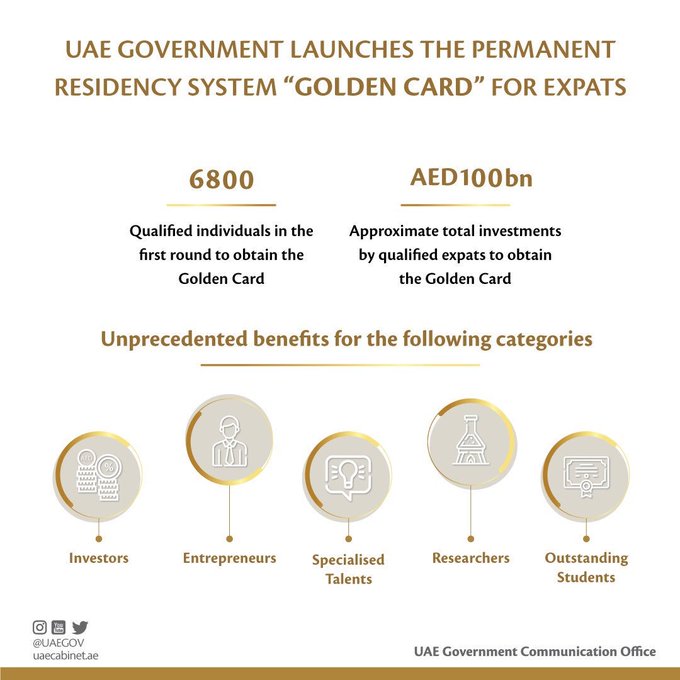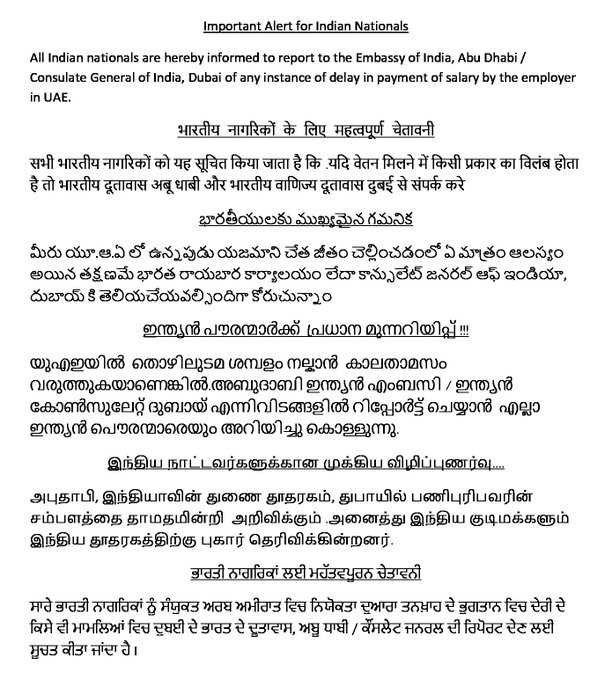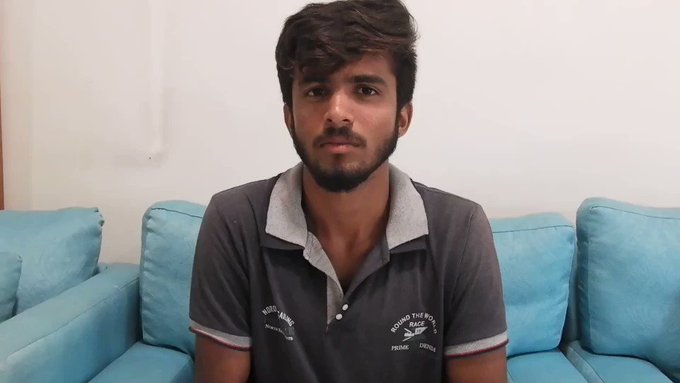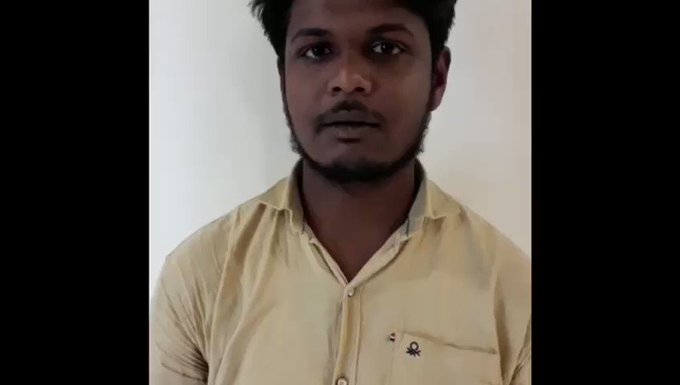The UAE's decision to grant permanent residency to investors will attract long-term residents, investors and world's best talent in diverse fields, hence increasing the size of the UAE's economy and stabilising it, analysts, businessmen and entrepreneurs have said.
His Highness Sheikh Mohammed bin Rashid Al Maktoum, Vice-President and Prime Minister of the UAE and Ruler of Dubai, on Tuesday announced permanent residency scheme Golden Card, which will be granted to qualifying investors, entrepreneurs, professional talents, researchers in various fields of science and knowledge, and outstanding students.
It is believed that the first beneficiary of this game-changing initiative will be existing businessmen, entrepreneurs and highly-skilled and qualified professionals and students who will convert their status and obtain the Golden Card.
Osama Al Rahma, CEO of Al Fardan Exchange and vice-chairman of Foreign Exchange and Remittance Group (FERG), said the permanent residency scheme will be very encouraging for the expat community and will reinforce their confidence in the country's governance and economy.
"The announcement is great news for investors in the UAE, especially those who have been here for a long time, as they are now able to benefit from greater security and stability. Investors will be able to plan long-term strategies for their businesses and invest more in existing businesses, thus allowing capital to remain within the UAE," Al Rahma said.
Dr Azad Moopen, founder chairman and managing director, Aster DM Healthcare, said this initiative has been a long-felt desire of the expat community to stay here permanently as many of them consider UAE as home.
"The ability to get a permanent residency will prompt people from many countries to come to the UAE and establish business. This will in turn improve the economy and increase employment opportunity," said Moopen.
Praising the UAE's decision of permanent residency, Taher Shams, managing director, Zulekha Healthcare Group, said this initiative will enable the group to plan long-term and look forward to greater success.
Nigel Green, founder and CEO of deVere Group, noted that the UAE is one of the world's top destinations for expatriates looking to embark upon or further their careers because of the fantastic possibilities offered in terms of finance, trade and commerce, plus that famous 'can do' attitude and the low-tax environment.
"The Golden Card will ensure the UAE becomes even more attractive for overseas talent as it provides permanency and, therefore, more certainty and stability. It will inevitably make recruiting more top talent easier for UAE-based firms and this can be expected to add real value to the country and its economy. The initiative will further fuel confidence that the UAE is a place for international companies to do business and invest. Its business powerhouse reputation will be galvanised by this proactive and forward-thinking new development," Green said.
"We are indeed very delighted for the Golden Card scheme. This is a great news and it will help attract investments and retain talented people who have contributed to the growth and development of the UAE," said Kamal Vachani, group director, Al Maya Group.
Fadi Ghandour, chairman and CEO, Wamda Capital, said it is a very timely and quite bold decision. "Lots of entrepreneurs and various people of talent will take it very seriously. It will certainly have a positive long term impact on the economy."
Criteria to get permanent residency around the world
USA
>Sponsorship by a family member
>Special employment
>Has made a major investment (minimum $500,000 or Dh1.825M)
>Qualified for the Diversity Lottery - around 50,000 immigrant visas are made available annually aimed at diversifying the immigrant population in the US, by selecting applicants from countries with low numbers of immigrants in the previous five years.
>Referred by the UNHCR as a refugee (or has request asylum in the US)
Singapore
>Must be spouse and unmarried children (below 21 years old) of a Singapore citizen or PR
>Any skilled workerwho the country thinks will make valuable contribution
>Aged parents of a citizen.
>Investors or entrepreneurs meeting eligibility criteria under the Singapore Investment Visa or Global Investor Program (GIP) - a scheme that allows people to bring their investment initiative to Singapore and obtain a permanent residence in the country immediately after making the pouring of money worth at least SGD2.5 million (Dh6.6M)
New Zealand
>Must be a resident visa holder for two years or more, and can show a commitment to live in New Zealand
>Must be under 56 years of age
>Must meet all health, character and English ability requirements
>Must be able to meet a pass mark of 100 points in the Points System to register an Expression of Interest. Points are awarded for age, having family members in New Zealand, employment, previous work experience, and qualifications - all these should meet the minimum threshold of 100 points
Canada
>Must be physically present in Canada for at least 730 days (2 years) in every 5-year period.
>The person has to be at least 18 years old in order to apply for a PR visa
>Having a bachelor's degree gives a higher chance of getting selected for Canada PR immigration while for the 'Express Entry points system', the highest points are given to people with PhDs.
Germany
>Must have been living in Germany for five uninterrupted years
>Must have a secure livelihood with health insurance and provision for retirement (pension) and adequate living space (at least 13sqm per person)
>Highly qualified workers may be issued with a German settlement permit immediately
>Graduates of a German higher education institute may be able to get a German permanent residence after two years
>EU Blue Card holders can apply after working 33 months (or just 21 months with a level B1 language certificate)
>Self-employed people, with an established business and secure livelihood, may be able to get permanent residency in Germany after three years.







































